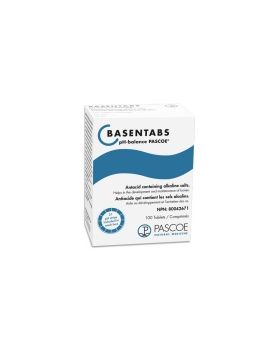|
Basentabs pH-BALANCE PASCOE |
||||||||||||||||||||||
|
||||||||||||||||||||||
|
|
|||||||||||||||||||||
| Acid-base balance
Acid-base balance plays an important role in an individual's overall health. If the body produces acid metabolic waste products more than that can be neutralized or excreted this will then result in a hyperacidity of the body in the long term. If the acid-base balance is disturbed, the optimal functioning of the body will be impaired. Thus, the body resorts to mechanisms to counteract this imbalance. The body primarily deposits all acids in connective tissue then releases and exretes them until sufficient basic mineral salts are available again in the blood. When there is extensive lack of alkaline mineral salts and continuous hyperacidity the body resorts to using its own minerals, e.g. calcium from the bones, which can result in osteoporosis. pH-Balance PASCOE tablets are products based on the recommendations of Friedrich F. Sander, a pioneer in the field of hyperacidity. The ingredients in pH-balance PASCOSE tablets have been optimized with regard to mineral balance according to the latest research. It contains basic magnesium carbonate, leading to high acid-binding capacity, in addition to Sander's original recipe.
Why does your pH matter?
Your body strictly regulates its level of acidity, using “buffers” such as alkaline mineral salts (for example, calcium carbonate). When the pH becomes acidic (less than 7.35 in the blood) the body will use any means possible to keep the pH balanced. How do we become acidic?
Acids are produced normally through your body’s metabolism. But hyperacidity—where the amount of acids produced is more than normal—can occur from various causes such as increased meat consumption, less fruit and vegetable consumption, stress, inflammation, allopathic medicine, and toxins. All of these are encountered by most people in today’s society on a daily basis. What happens when my body is acidic?
When the level of acids increases, the body uses its built-in buffering systems to neutralize them. If there are more and more acids, the body will use any buffering substances which are available in an attempt to keep the pH in the blood stable. Even small changes in blood pH can be extremely harmful. The body will store acids in the connective tissue, which can cause an increase in inflammation and degeneration throughout the body. And to supplement the buffers in the bloodstream, the body will “borrow” calcium and other alkalinizing minerals from the bones. This can result in osteoporosis. Many other disorders, ranging from digestive problems to allergies, can be linked to acidosis.
|
||||||||||||||||||||||



